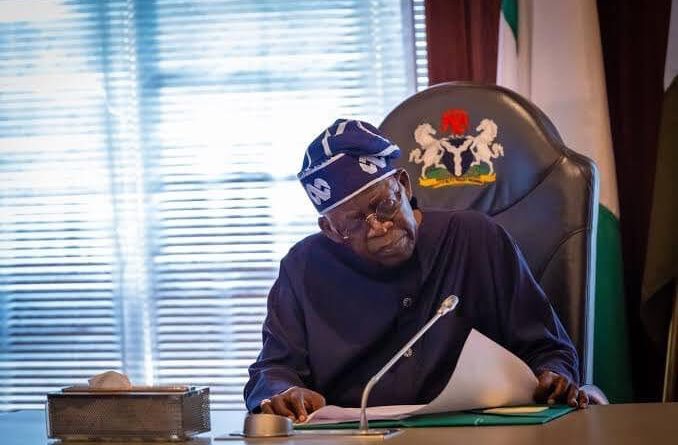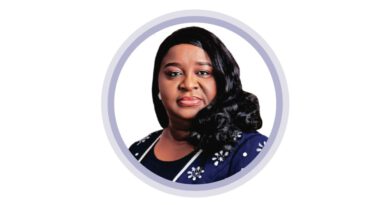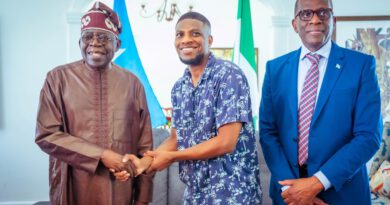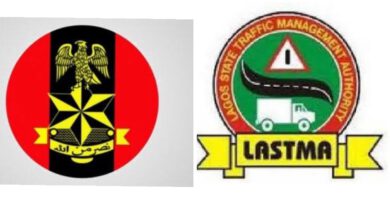Why Tinubu didn’t stop EFCC from arresting Bello- Presidency
Ahead of Supreme Court ruling on Kogi State former governor, Yahaya Bello’s suit against the Economic and Financial Crimes Commission (EFCC), President Bola Tinubu has declared intention not to interfere in the anti-graft move to arrest Bello, despite been a member of the All Progressives Congress (APC) and a member of his campaign organization during the 2023 election.
Despite allegations from some quarters that Bello was being witch-hunted by the anti-graft agency, the president has continued to maintain that the EFCC should carry out its duties as mandated by law, just as he rallied Nigerians to support the agency in its drive to curb corruption in public offices.
Shedding light on why Tinubu chose not to interfere on Thursday, a member of Tinubu’s kitchen cabinet explained that the President’s action was poised to send strong signals that his administration won’t condone graft in public offices and not ready to spare individuals linked to corruption irrespective of ethnic or political affiliations.
The Ola Olukoyede-led EFCC had accused the former governor of N110bn fraud after the anti-graft agency initially filed 19 charges against Bello, along with his nephew Ali Bello, Dauda Suliman, and Abdulsalam Hudu, for money laundering offences amounting to N80,246,470,088.88.
However, in the fresh 16 charges dated September 25, the total sum of the same money laundering offences rose to N110,446,470,89.00. Bello, alongside other defendants, was alleged to have bought a total of 12 houses in various locations in Abuja with the money. The trio were alleged to have committed criminal breach of trust in respect of the total sum of N110, 446, 470, 089.00 entrusted to them.
The EFCC declared Bello wanted while Nigerian Immigration also placed the governor on a watchlist after a failed attempt to arrest him and his repeated absence from court for his arraignment.
In September 2024, the EFCC operatives allegedly moved to arrest the ex-governor, according to Bello Media Office. In a statement, the office’s Director of Media, Ohiare Michael, alleged that the operatives “are currently around the Kogi Government Lodge, Asokoro in an attempt to forcefully arrest former Governor Yahaya Bello.”
The attempted arrest followed Bello’s visit to the EFCC headquarters. Bello, who was accompanied to the commission’s office by his successor, Usman Ododo, was turned back by the agency.
But reacting to why the President didn’t interfere in the matter involving the commission and Bello, sources in the presidency maintained that Tinubu’s stance was to send clear signals to looters that the era of corruption had ended.
According to a source, Tinubu intends to ensure a break away from the trend where political allies are protected from investigation and prosecution even after they had been found to have diverted public funds.
“Tinubu’s decision to let the EFCC proceed with Bello’s arrest demonstrates a shift towards a more unbiased approach to tackling corruption,” the source who doesn’t want his name in print said, adding that the President won’t “Allow selective prosecution of individuals based on political loyalties”.
“Tinubu did not intervene to stop the anti-graft agency from carrying out its duties, especially considering that Bello is a key member of the ruling All Progressives Congress because upon assuming office, he emphasized the importance of transparency, accountability, and the rule of law. By allowing the EFCC to operate without interference, the President is sending a clear message that his government will not condone corrupt practices, irrespective of political affiliations or status,” the source added.
Also, a female source in the president, who spoke to our correspondent on anonymity condition, said Tinubu didn’t interfere in the EFCC’s operations against Bello because of his administration’s firm commitment to fighting corruption across all levels of government.
She said, “Tinubu’s desire to uphold the independence and integrity of critical institutions like the EFCC was why he didn’t interfere. Don’t forget that the EFCC chairman had also confirmed in one of his public engagements that the President has never interfered in their operations.”
“This autonomy is crucial in strengthening public trust in the nation’s institutions. As an anti-corruption body, Tinubu recognises that the EFCC must be empowered to act independently. So, stopping or interfering in the arrest of Bello could cast doubts on the administration’s anti-corruption fight,” the source who craved anonymity because of the sensitive nature of the matter, said.
Another presidency described Tinubu’s non-interference in Bello and EFCC saga as a “strategic move”. According to him, it showcases that Tinubu is willing to prioritize Nigeria’s long-term interests over personal or party considerations.
“By allowing the EFCC to pursue its mandate, the President is reinforcing his commitment to ensuring that his longstanding belief in democratic principles is upheld, even when dealing with close political allies.
“By not intervening in Bello’s arrest, Tinubu reinforces the idea that political office should not be a shield from legal scrutiny. The EFCC’s action against Bello can be seen as part of Tinubu’s broader effort to demonstrate that elected officials and public officeholders must be held accountable for their actions,” the source added.
Recall that in June 2024, Olukoyede during a courtesy visit to the Ooni of Ife, Oba Adeyeye Enitan Ogunwusi, confirmed that Tinubu gave him full access to deal with criminals and those who had dipped their hands into the public treasury.
“Since I was appointed the Chairman of the EFCC, the President has never called me to stop, impose, dictate, or prescribe any directive as regards the affairs or activities of the commission, rather the anti-graft agency has so far enjoyed adequate support needed from the Federal Government towards achieving the mandate of the commission,” Olukoyede had said.
Also, Olukoyede, through a recent press release by the agency’s spokesperson, Dele Oyewale, reiterated his commitment to ensuring political bigwigs have their days in court to account for several corruption cases hanging on their necks.




